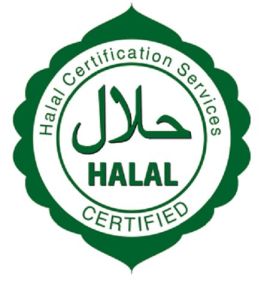
ISO 22000:2005 Food Safety Certification Services
Get Price Quote
What is HACCP? :Management Systems such as HACCP when granted by an International Registration Body provides organizations with the basic management requirements assisting in the implementation of effective food safety and good practices (cGMPs) and demonstrating to others. HACCP is endorsed by the United Nations “Codex Alimentarius? USA FDA - USDA, European Union, Canada, Australia, New Zealand, and Japan etc.We provide recognized ISO 22000 Certification Services in most competitive fee. ISO 22000:2005 specifies requirements for a food safety management system. In this, an organization in the food chain needs to demonstrate its ability to control food safety hazards to ensure that food is safe at the time of human consumption and it can be accomplished through the use of internal and/or external resources. It enable an organization to plan, implement, operate, maintain and update a food safety management system aimed at providing products that, according to their intended use, are safe for the consumer. Also, to evaluate and assess customer requirements, we demonstrate conformity with those mutually agreed customer requirements that relate to food safety, in order to enhance customer satisfaction.What is ISO 22000? : The International Organization for Standardization (ISO) has developed the ISO 22000 Food Safety Management Systems Standard. Officially called ISO 22000, Food Safety Management Systems - Requirements for any organization in the food chain, ISO 22000 is an international standard and defines the requirements of a Food Safety Management Systems covering all organisations in the food chain from “farm to fork? including catering and packaging companies. There has been a continuous increase in consumer demand for safe food. This has led to the development of numerous food safety standards. The growing number of national standards for food safety management has led to confusion. Consequently, there is a need for international harmonization and ISO aims to meet this need with ISO 22000. The standard combines generally recognized key elements to ensure food safety along the food chain including: interactive communication; system management; control of food safety hazards through pre-requisite programmes and HACCP plans; and continual improvement and updating of the management system. ISO 22000 is intended to define the requirements for companies that desire to exceed the regulatory requirements for food safety. Who should use the standard? :As food safety hazards may be introduced at any stages of the food chain, adequate control throughout the food chain is essential. Thus food safety is a joint responsibility that is principally assured through the combined efforts of all the parties participating in the food chain.ISO 22000 may therefore apply to, and not be limited to : Primary food producers through to food manufacturers, including food Retail and food service outlets Feed producers Transport operators and storage operators Producers of equipment and packaging material Producers of cleaning agents, additives and ingredients Benefits to users : Benefits for organizations implementing ISO 22000 include : Resource optimization - internally and along the food chain More efficient and dynamic food safety hazard control All control measures subjected to hazard analysis Better planning, less post process verification Improved documentation Saves resources by reducing overlapping system audits - how? Systematic management of prerequisite programmes Control focused on what is necessary Widely applicable because it is focused on end results Organized and targeted communication among trade partners (repeated below) Valid basis for taking decisions Increased due diligence Dynamic communication on food safety issues with suppliers, customers, regulators and other interested parties A systematic and proactive approach to identification of food safety hazards and development and implementation of control measures. Further benefits include : Confidence that the organizations which are implementing the standard have the ability to identify and control food safety hazards Provides a reference for the whole food chain Contributes to a better understanding and further development of Codex HACCP System approach, rather than product approach Fills a gap between ISO 9001 and HACCP Provides a framework for third party certification Auditable standard with clear requirements Suitable for regulators Provides potential for harmonization of National standards.

Halal Certification Services
Get Price Quote
Capture global markets with our Halal Certification Services. We assist businesses in obtaining the Halal certification, ensuring adherence to Islamic dietary laws. Our expert services cover documentation, audits, and compliance assessments, allowing your products to carry the Halal mark. Gain consumer trust and access Muslim-majority markets with our reliable certification assistance. Navigate the Halal certification process seamlessly with our guidance, showcasing your commitment to quality and cultural sensitivity. Partner with us for a recognized mark of excellence in producing Halal-compliant products. Elevate your brand and tap into diverse markets with our Halal Certification Services.
Looking for Food Certification Services Providers

haccp certification service
Get Price Quote
HACCP stands for Hazard Analysis and Critical Control Point. The HACCP system, as it applies to food safety management, uses the approach of controlling critical points in food handling to prevent food safety problems

Haccp Certification Services
Get Price Quote
Iso 22000 / haccp is premier food safety management system standard used throughout the world in food industry. It is a preventive quality management system designed for providing intensified controlling and monitoring during important processes of food suppliers that helps to improve their food safety and quality but is also able to make profits through cost reduction and reduced rejections. haccp is built around seven principles analysis of food hazards: biological, chemical or physical identification of critical control points: raw materials, storage, processing, distribution and consumption establishment of critical control limits and preventive measures: for example, minimum cooking temperature and time monitoring of these critical control points establishment of corrective actions keeping records establishing a systematic and regular auditing of the system in place by independent third party certification bodies. benefits of implementing haccp haccp can be applied throughout the food chain from the primary producer to final consumer : haccp reduces the need for finished product testing by identifying the hazards associated with the inputs into the process and the product and devising control measures which can be monitored in order to minimize or eliminate the hazards. haccp will significantly reduce the chance of microbiological, chemical, and physical contaminants from reaching the customer. haccp can reduce regulatory involvement (and hence costs) by replacing on-line inspection with regular auditing. haccp principles can be applied to other aspects of food quality and regulatory requirements. haccp improves communications between supplier and customer. It encourages businesses to work together more closely. haccp is capable of accommodating changes such as advances in raw materials, equipment and premise design, procedures, and technological developments. it improves customer confidence leads to increased market share.

Food Inspection Service
Get Price Quote
Food Inspection Service

HACCP Certification
Get Price Quote
HACCP Certification, ISO Consultants, FSSC 22000 certification

Haccp Certification Services
Get Price Quote
Haccp can be considered a management system that addresses food safety through the analysis and control of biological, chemical, and physical hazards right from raw material production, procurement and handling, to manufacturing, distribution and consumption of the finished product. It's designed to be used in all segments of the food industry, and all the safety systems based on haccp principles have been successfully applied. Globally, food industries, as well as government agencies have accepted the seven principles of haccp, which are: analyze hazards determine the critical control points (ccps) establish preventive measures with critical limits for each control point establish procedures to monitor the critical control points establish corrective actions to be taken when monitoring shows that a critical limit has not been met establish procedures to verify that the system is working properly establish effective record keeping to document the haccp system advantages haccp offers a number of advantages focuses on identifying and preventing hazards from contaminating food enhanced assurance of food safety better management of resources timely response to problems is based on sound science permits more efficient and effective government oversight helps food companies compete more effectively in the world market reduces barriers to international trade